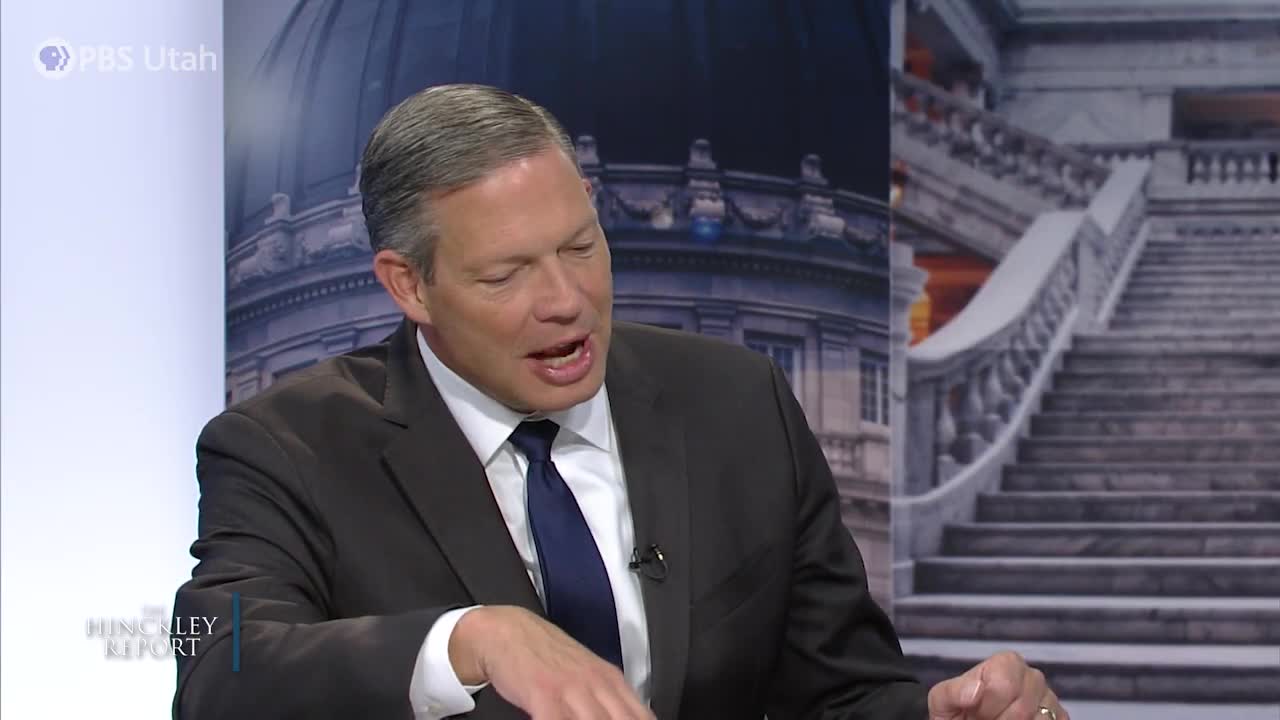Governor calls special session for Monday the 6th to vote on congressional map; panelists weigh legal tests and timelines
Get AI-powered insights, summaries, and transcripts
Subscribe
Summary
A special session and a redistricting committee meeting set for Monday will focus on Utah’s congressional map. Panelists discussed Sen. Brammer’s bill to add a partisan-bias test to Prop 4 standards, the 30-day timeline to redraw maps and the difficulty of keeping cities intact while equalizing population.
SALT LAKE CITY — Utah’s governor has issued a call for a special legislative session Monday, the sixth, and the state redistricting committee is scheduled to meet at 8 a.m. to vote on a congressional map, panelists on the Hinckley Report said.
Representative Jennifer Dailey-Provost, D–Salt Lake City, said the committee’s agenda currently lists a vote on a congressional map and that Sen. Brammer recently introduced a bill that would change the standards used to evaluate maps under Proposition 4. “Senator Brammer presented a bill to the redistricting committee two weeks ago that changes the standards that can be utilized when evaluating a congressional map from those that were set out in Prop 4,” Dailey-Provost said.
Dailey-Provost added that Brammer’s bill includes an immediate-effect clause: if signed by the governor, the bill would take effect upon signature and could alter the rules applied to any map vote in the special session.
Why it matters: Panelists said the rules by which maps are judged will determine how Utah’s congressional districts are drawn and which communities are split. Thomas Wright warned the technical process of defining partisan symmetry is difficult and cautioned against courts stepping in to make policy choices: “I just worry that we're entering an era of activist judges, judges that are creating public policy and not just interpreting the law,” Wright said.
Panelists described the practical difficulty of drawing four equal-population congressional districts in a state where the majority of residents live on the Wasatch Front. One panelist noted the current congressional map splits 14 municipalities, while a Democratic alternative produced in the 30-day period split 13, a comparison the panel used to illustrate the complexity of the task. Dailey-Provost described a personal example of how small moves can change representation: after a 2020 move she discovered she had a different congressional representative than before because of district lines.
Dennis Romboy said courts ordered the redrawing of maps after a finding tied to Prop 4 and that the legislature has only 30 days to act, which panelists called “lightning speed” for the process. The discussion recalled other statutory and ballot-test metrics that Prop 4 references and noted that Brammer’s bill would create a formal partisan-symmetry formula that examines margins of victory in previous statewide elections.
Panelists urged careful consideration of “communities of interest” and cautioned lawmakers to avoid unnecessary splits of municipalities, universities and military installations where possible. They also noted the legal and political trade-offs: changing the standard for evaluating maps now could affect whether the legislature’s maps survive judicial review.
The redistricting committee is expected to meet Monday morning; lawmakers could consider both Brammer’s bill and competing map proposals during the special session.
